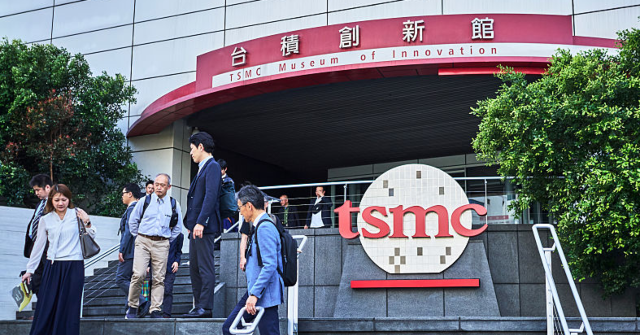Taiwan’s Ministry of Justice Investigation Bureau (MJIB) is investigating 16 Chinese firms for “illegal poaching of high-tech talent.” Taiwan’s semiconductor industry is reportedly of particular interest to China.
“Taiwan’s high-tech talent has become a key target for recruitment by Chinese enterprises,” the MJIB warned.
The bureau has a task force, established in late 2020, that has already investigated over a hundred such cases of “poaching.” The task force began intensive investigations of 11 Chinese firms in December 2024, adding five more later.
The investigation shifted into high gear in March, with hundreds of MJIB agents conducting searches and questioning employees of the Chinese companies. An even larger surge of investigations began on July 15 and just recently concluded on August 6, this time including coordinated raids of Chinese entities operating in Taiwan.
The targeted Chinese companies include major semiconductor, chip design, and electronics firms, including Victory Giant Technology, a supplier for U.S. electronics behemoth Nvidia. One of the companies under investigation is Chipone, China’s largest chip design firm.
MJIB said Victory Giant Technology “set up an office in Taiwan via Taiwanese nationals without the Taiwanese government’s approval to poach Taiwan’s tech talent.” The other firms under investigation engaged in similar activities.
According to an MJIB press release, Chinese companies are using “fake Taiwanese capital or fake overseas Chinese and foreign capital,” combined with “real mainland capital” to establish their operations in Taiwan. The bureau also accused China of using front companies and elaborate organizational schemes to conceal their poaching activities.
In one example from the first wave of investigations, China’s partially state-owned Semiconductor Manufacturing International Corporation (SMIC) was accused of using a Samoan company to hire Taiwanese engineers.
Taiwanese prosecutors said the talent poaching was especially troubling because some of the tech industry employees lured away by China have been attempting to take their old employer’s research and development with them. Taiwan has grown very concerned about leaks of advanced chip technology.
In early August, Nikkei Asia reported that the Taiwan Semiconductor Manufacturing Company (TSMC) fired several of its employees for violating company rules on accessing information related to advanced chip technology.
TSMC said these “unauthorized activities” created “potential trade secret leaks,” some of which could have national security implications. The High Prosecutors Office of Taiwan told Nikkei Asia that its Intellectual Property Branch has been assigned to investigate the leaks.
“Following an internal investigation, TSMC discovered that its national core technology trade secrets had been allegedly illicitly obtained by a former employee in collusion with current employees,” prosecutors said.
Taiwan significantly toughened its laws against talent poaching in 2022, including hefty fines of up to $843,000 and jail terms of up to 12 years for acts of “economic espionage.” Under Taiwanese law, Chinese companies which establish subsidiaries on Taiwanese soil are required to obtain approval from regulators, and assisting Chinese investors without disclosing their identities and financial interests is a serious crime. The rules are stricter for “key national technologies,” including cutting-edge semiconductors.
Read the full article here
